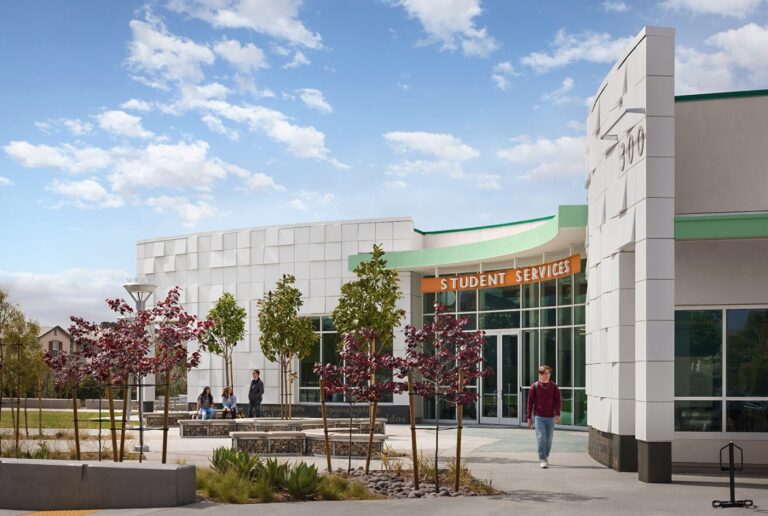By Beatriz (Bea) Palmer
Isabella, a formerly undocumented immigrant and community college student, is now a fulltime student at San Diego State. Unable to work or access financial aid, she and her husband faced deep financial struggles while caring for their young daughter. “Having access to free childcare has been instrumental in allowing me to return to school,” she says.
Childcare is not a luxury—it’s survival. Nearly 70% of U.S. children under six—about 14.7 million—have parents who are working, studying, or training for better jobs, according to American Progress.
Families struggle to find affordable options, regardless of their financial status. Meanwhile, educators—mostly women of color, according to the Urban Institute—are often underpaid as well as undervalued by those who don’t see as essential the work of early childhood educators helping nurture and raise our babies.
In North San Diego County, our local Head Start has committed to doing better. Last year, it adjusted its lowest entry-level position to $20—a testament to its commitment to child development professionals.
For many families, programs like Head Start and Early Head Start aren’t just about affordable childcare; they’re a lifeline to economic mobility. These programs provide health screenings, nutrition services, and family resources while empowering parents to be their child’s biggest advocate. Head Start works because it provides a whole-child, whole-family approach to early childhood education, building a foundation from cradle to career and economic mobility for families.
In 2023, 2.2 million parents of young children had to quit their jobs or turn down work because they couldn’t afford childcare. In California, 10% of families say childcare is their biggest expense—so high it’s often cheaper for one parent to stay home. It’s almost always the mother who makes that sacrifice.
For many families, even with two parents working, making ends meet without public support like CalFresh, food pantries, or side hustles is nearly impossible. So, Head Start and Early Head Start aren’t just important—they’re essential. They give parents the freedom to work or study without sacrificing their children’s early education.
In San Diego County, 244,665 children are under six. That’s a quarter million babies, all needing childcare, early learning, and support. Yet, Black, Latino, and immigrant families—those already struggling the most—have the least access to resources.
Head Start, a free, federally funded program under the US Department of Health and Human Services, gives low-income families access to early education, health care, and the tools to thrive. It uplifts entire families, turning parents into advocates, leaders, and changemakers through programs like Policy Council, family engagement, and kindergarten transition support. This is the kind of investment that transforms families’ generational wealth.
Personal Stories: Head Start is a Game Changer
One of my proudest memories was watching my sister Grace, a Head Start alumni, walk the stage and get her degree—not just for herself, but for her babies. Grace’s children grew up seeing their mom’s sacrifice, perseverance, and drive.
Like my mom always said, “Our struggle is honored here.” Grace, like many other mommies and struggling families, embodied that statement. She worked, studied, and raised her kids as a single mom. Today, she’s a regional director, a “wonder woman” mother of three, married to a wonderful, supportive husband.
When families are supported, they can break free from the cycle of poverty for the future generation. Isabella’s daughter has also benefited. “My daughter has made significant progress… She is beginning to form sentences, has developed socially, and has made friends at school. I truly believe the support she received has played a crucial role in her growth.”
I know firsthand that Head Start works. All three of my kids (Grace included) are Head Start alumni—today, my son is a successful assistant superintendent in a construction company, and my daughter went from community college to UC Berkeley and is now earning her master’s at SDSU. We no longer qualify for Head Start—and that’s precisely the point. Head Start propels families forward—toward stability, success, and generational change, what we call economic mobility. Sometimes generational change takes time. Yet, childcare continues to be a struggle for middle-income families, not just those who meet the Head Start income requirements.
Here’s my challenge for you. Acepten el reto de ayudar.
- Honor a working parent who has to leave children in childcare. Their children might not see it yet, but their community sees and appreciates their sacrifices·
- If you know a Head Start teacher or early childhood educator, send them a note of appreciation. Their work is invaluable.
- MAAC Child Development is actively recruiting families for their Head Start, Early Head Start, and Child Development programs and partnerships.
- Donate to a Head Start Family Emergency Fund or Family Engagement Fund. When we invest in families, we invest in our future: https://maacproject.org/headstart/
- San Diego Childcare Resources: https://childcaresandiego.com/
- YMCA Childcare Resources : https://www.ymcasd.org/community-support/childcare-resource-service
- CDA Childcare Program Support: https://cdasd.org/families/childcare/
- Learn how to advocate for Head Start in California: https://headstartca.org/advocacy/howtoadvocate/
- Share your Head Start alumni story to inspire others: https://nhsa.org/alumni/
- Take action to protect and expand Head Start funding: https://nhsa.org/take-action/




